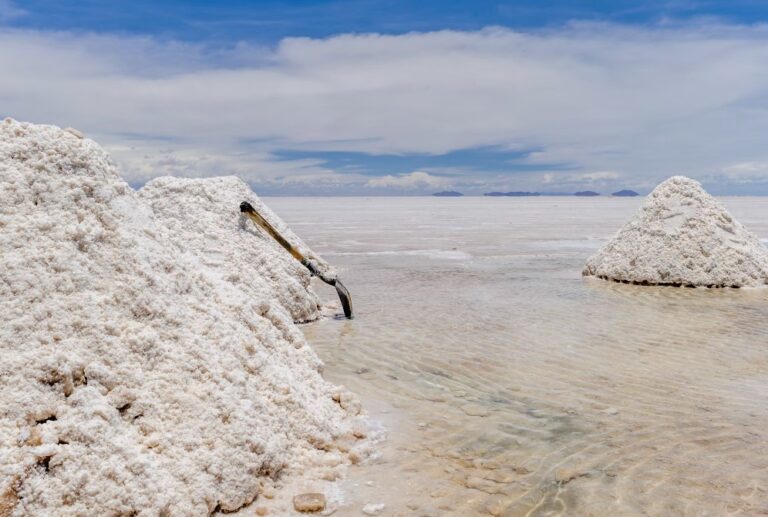To slow down and stop climate change it is necessary to stop exploiting fossil fuels. To leave oil, coal and gas underground, it is necessary to focus on renewable energy, which must then power every sector, every activity, including for example that relating to transport.
But to use electricity in the world of transport, large batteries are needed, and in fact the only technology that can actually be used nowadays is that which involves the use of lithium batteries. Which yes, actually allow us to hope for a better climate future. but at the same time they entail significant environmental impacts; first of all, above all things, precisely for the extraction of lithium.
We therefore risk having many “dirty” mines to fuel the many desired “clean” cars. How can we get out of this paradox? Is there a more sustainable lithium extraction?
Table of Contents
Lithium extraction and its environmental impact
Let’s first of all try to understand what the environmental impact of lithium extraction is, and what it could be in the future. Currently, countries such as Australia, Chile and China produce around 90% of the world’s lithium.
Today the market is worth around 8 billion. But, as the energy transition progresses, it will reach around 20 billion by 2030. According to BloombergNef, between 2023 and 2050 the annual demand for this metal will increase by around 9 times, to almost 7 million tons.
Will it be possible for mining to keep pace? That is, will the mines be able to continue to satisfy this demand? It’s difficult to know for sure. What is certain is that currently around 30% of the mines are in the hands of China, which the West does not like at all. The idea of becoming dependent on an authoritarian country is not welcome. And then there is the much larger problem of pollution linked to lithium extraction.
To put it simply, lithium can be extracted from rocks, as happens in Australia, or from salt water, as happens in South America. Most lithium is extracted from South American brines, which hold more than 50% of global deposits of this metal.
It’s a shame that the current method for extracting lithium involves evaporating these ponds. So that at the end of the process you only have this very precious metal in your hands. This process is decidedly inefficient (about half of the lithium actually present is recovered), it consumes a lot of energy and above all a lot of water.
Read also: Lithium is the new gold: how global race to extract it faster can change geopolitical balances
The opportunity of direct extraction
The direct extraction of lithium would instead allow the brines to be exploited in a less impactful way. This technology does not involve the evaporation of the ponds. Instead it involves machinery which, by sucking in the salt water, filters it to extract the lithium.
The advantages are many. I.e. reduced use of fresh water, smaller size, reduced timing, greater efficiency (it should be possible to recover around 80% of the lithium present). With machinery for direct lithium extraction it should thus be possible to concentrate even on those ponds that have a lower concentration of this metal, without the activity being economically unprofitable.
All roses and flowers? Not really. There are some obstacles, starting from the fact that the technologies for the direct extraction of lithium require to be customized from deposit to deposit. Thus changing the chemical sorbents used, based on the characteristics of the geological formations present. In the coming years we will see how much this technology will gain ground, in South America and elsewhere in the world.
Read also: Lithium is the new gold: how global race to extract it faster can change geopolitical balances












